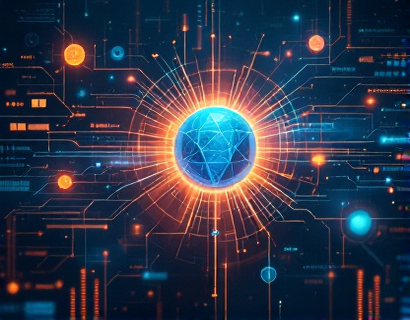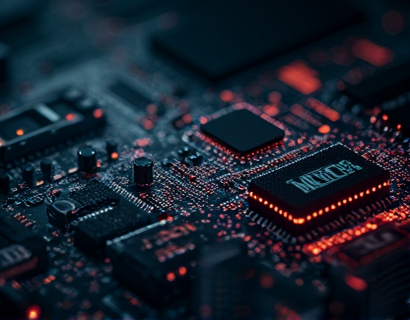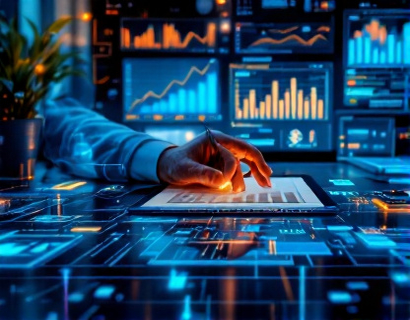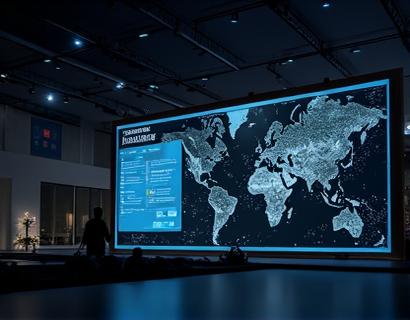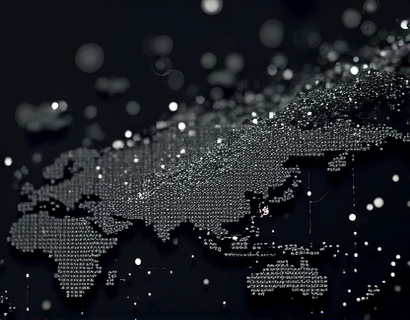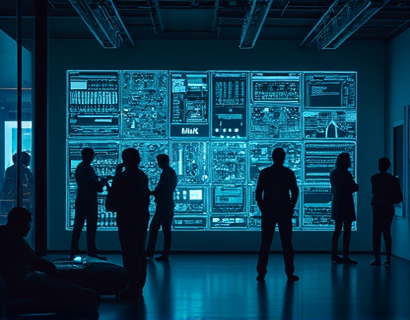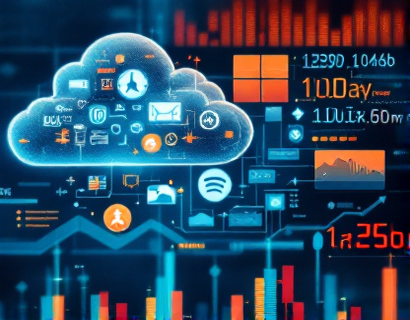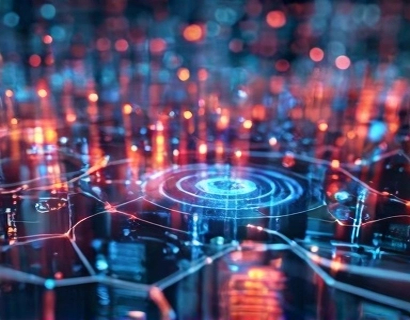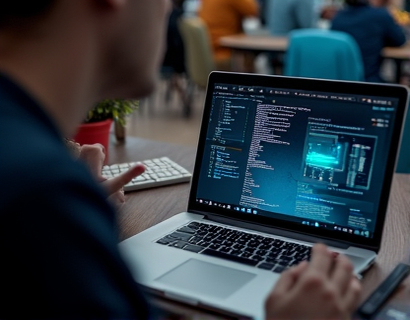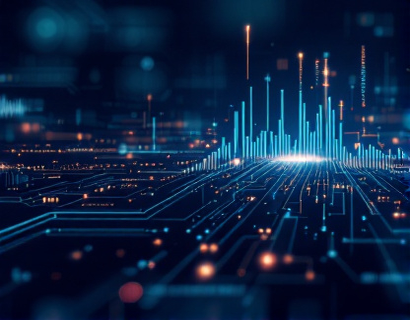Decentralized Productivity: Turbo-Charged with AI and Crypto Integration
The intersection of artificial intelligence and cryptocurrency is giving rise to a new era of decentralized productivity tools. These advanced technologies are merging to create sophisticated applications that not only enhance efficiency but also redefine the user experience. This article explores how the fusion of AI and crypto is transforming workflows, making them more intuitive, secure, and powerful. Whether you are a tech enthusiast, a productivity professional, or an early adopter of digital solutions, understanding these developments is crucial for staying ahead in the rapidly evolving digital landscape.
Understanding Decentralization in Productivity Tools
Decentralization, at its core, refers to the distribution of functions, processes, or activities away from a central authority. In the context of productivity tools, this means moving away from centralized servers and platforms controlled by a single entity to a more distributed network. This shift brings several advantages, including enhanced security, increased transparency, and greater resilience against failures. Decentralized applications, or dApps, leverage blockchain technology to ensure that data and processes are spread across a network of nodes, making them less vulnerable to hacks and data breaches.
The integration of decentralization with productivity tools means that users can collaborate and manage tasks without relying on a central server. This not only improves data integrity but also empowers users by giving them more control over their data and workflows. For instance, decentralized file storage solutions allow users to store and share files securely, with version control and access management handled through smart contracts. This ensures that files are always up-to-date and accessible only to authorized users.
AI: The Brain Behind Decentralized Productivity
Artificial intelligence plays a pivotal role in enhancing the capabilities of decentralized productivity tools. AI algorithms can process vast amounts of data, identify patterns, and make predictions, all of which are essential for optimizing workflows. In a decentralized environment, AI can be deployed at the edge, meaning it operates closer to the data source, reducing latency and improving response times. This is particularly beneficial for real-time collaboration tools, where AI can provide instant insights and suggestions based on the collective input of team members.
One of the key applications of AI in decentralized productivity is automated task management. AI-driven assistants can schedule meetings, assign tasks, and even predict potential bottlenecks in a project. These assistants operate on decentralized platforms, ensuring that all data and decisions are transparent and tamper-proof. For example, an AI-powered project management tool can analyze historical data to forecast project timelines and resource allocation, adjusting plans dynamically based on real-time inputs from team members.
Enhancing User Experience with AI and Crypto
The combination of AI and cryptocurrency creates a powerful synergy that significantly enhances user experience. Cryptocurrencies, with their inherent properties of security and decentralization, provide a robust foundation for transactions and data exchanges within productivity tools. Smart contracts, self-executing contracts with the terms directly written into code, ensure that transactions are executed precisely as agreed upon, without the need for intermediaries. This not only speeds up processes but also reduces the risk of fraud and errors.
AI enhances this experience by personalizing interactions and providing intelligent recommendations. For instance, a decentralized calendar application can use AI to analyze a user's schedule and preferences, suggesting optimal meeting times and even proposing locations based on the availability of participants. The use of natural language processing (NLP) allows users to interact with these tools using voice commands or natural language queries, making the experience more intuitive and user-friendly.
Moreover, AI-driven analytics can provide deep insights into user behavior and productivity patterns. These insights can be used to tailor the user interface and functionality to individual needs, creating a more personalized and efficient work environment. For example, an AI-powered productivity dashboard can highlight areas where a user spends the most time, suggesting tools or workflows that could streamline those tasks.
Security and Privacy in Decentralized Productivity
Security and privacy are paramount in any productivity tool, and the integration of AI and cryptocurrency addresses these concerns effectively. Blockchain technology ensures that data is encrypted and distributed across a network, making it extremely difficult for unauthorized parties to access or alter. AI enhances security by continuously monitoring the network for anomalies and potential threats, enabling real-time threat detection and response.
Privacy is another area where AI and cryptocurrency excel. Zero-knowledge proofs, a cryptographic method, allow users to prove the validity of a statement without revealing the underlying data. This means that users can verify transactions or data exchanges without exposing sensitive information. AI can further enhance privacy by anonymizing data and ensuring that user identities are protected while still allowing for seamless collaboration and data sharing.
Case Studies: Real-World Applications
Several real-world applications demonstrate the potential of AI and cryptocurrency in decentralized productivity tools. One notable example is a decentralized content creation and monetization platform. This platform uses AI to curate and recommend content based on user preferences and engagement metrics. Cryptocurrency tokens are used to reward creators and incentivize high-quality content, while smart contracts ensure fair distribution of earnings among contributors. The decentralized nature of the platform ensures that content is stored securely and that users have full control over their creations.
Another example is a decentralized project management tool that leverages AI for task optimization and resource allocation. This tool uses blockchain to maintain a transparent and immutable record of project progress, with AI algorithms providing real-time insights and recommendations. Team members can interact with the tool using voice commands or natural language interfaces, making collaboration more efficient and accessible. The use of cryptocurrency for transactional processes within the tool ensures that all actions are secure and verifiable.
Challenges and Future Prospects
Despite the numerous benefits, the integration of AI and cryptocurrency in decentralized productivity tools is not without challenges. One of the primary challenges is scalability. Blockchain networks, particularly those using proof-of-work consensus mechanisms, can struggle with high transaction volumes, leading to slower processing times and higher costs. However, the development of more efficient consensus algorithms and layer 2 solutions is addressing these issues, paving the way for more scalable decentralized applications.
Another challenge is the user adoption curve. Decentralized tools and blockchain technology can be complex and intimidating for new users. Education and user-friendly interfaces are essential to overcome this barrier. As more users become familiar with these technologies, the adoption rate is expected to increase, leading to a more robust and diverse ecosystem of decentralized productivity tools.
The future of decentralized productivity tools is promising, with ongoing advancements in AI and blockchain technology. The integration of machine learning, natural language processing, and quantum computing is set to further enhance the capabilities of these tools. As the ecosystem grows, we can expect to see more innovative applications that not only improve productivity but also redefine how we collaborate and manage tasks in a digital world.
In conclusion, the fusion of AI and cryptocurrency is revolutionizing productivity tools, offering a decentralized, secure, and intelligent approach to workflows. By leveraging these cutting-edge technologies, users can experience a new level of efficiency and user experience, setting the stage for a more empowered and connected digital future.





